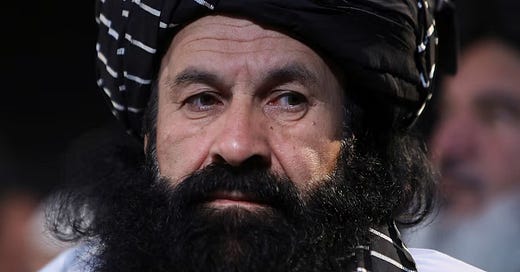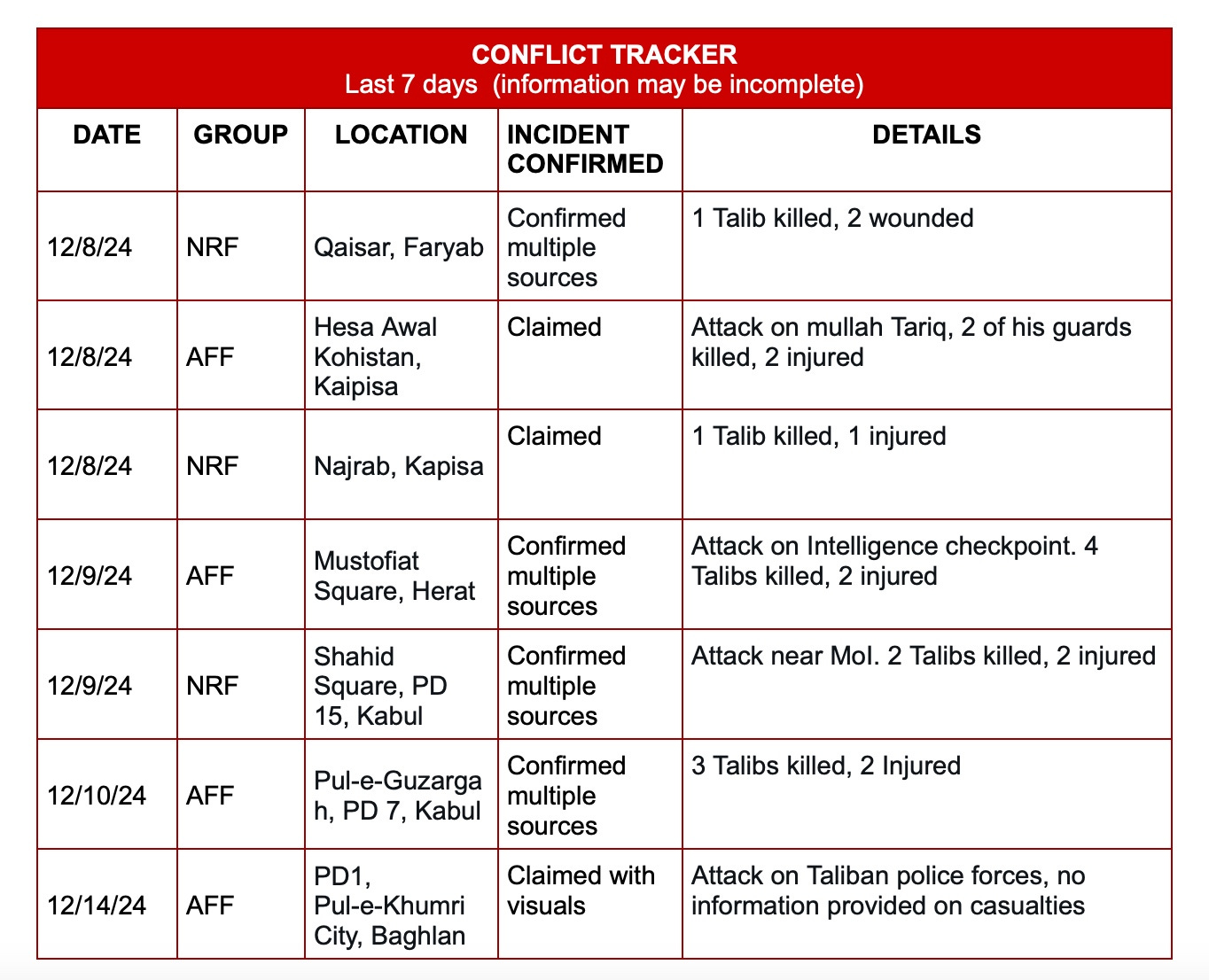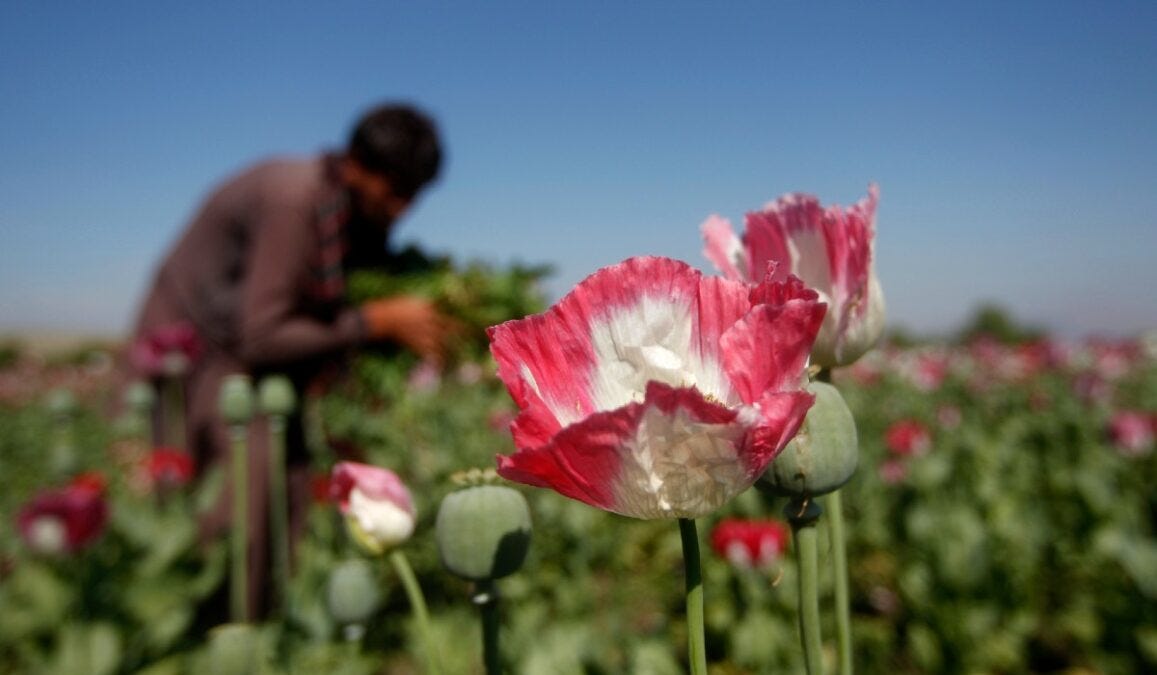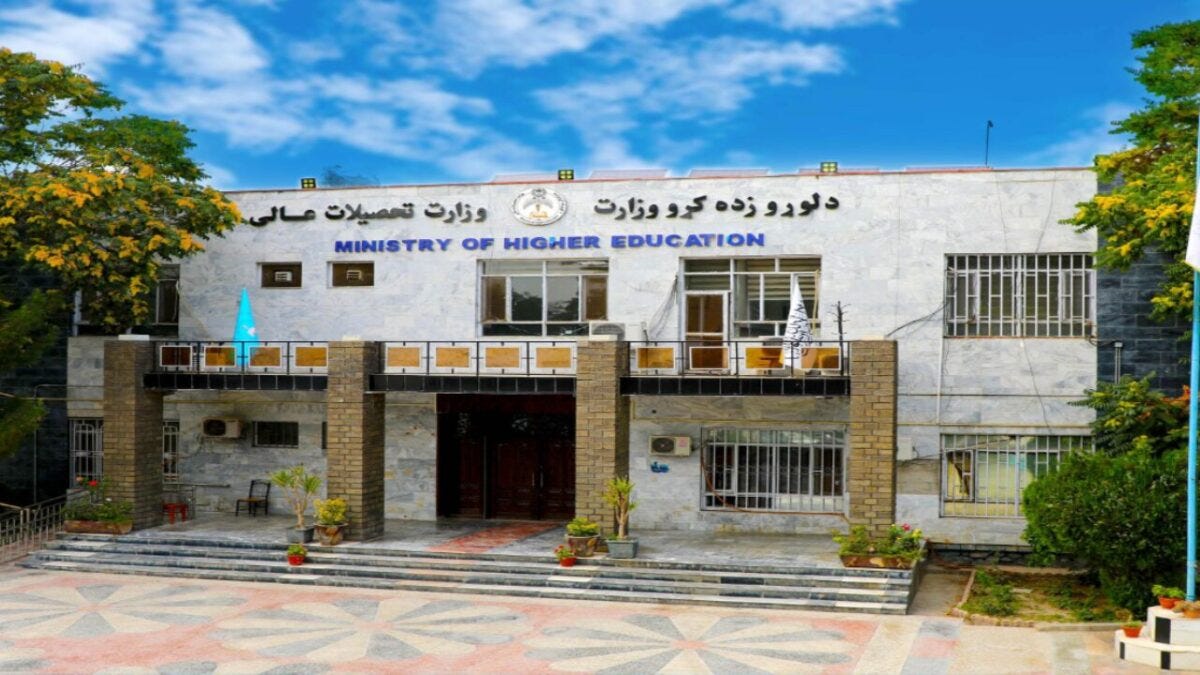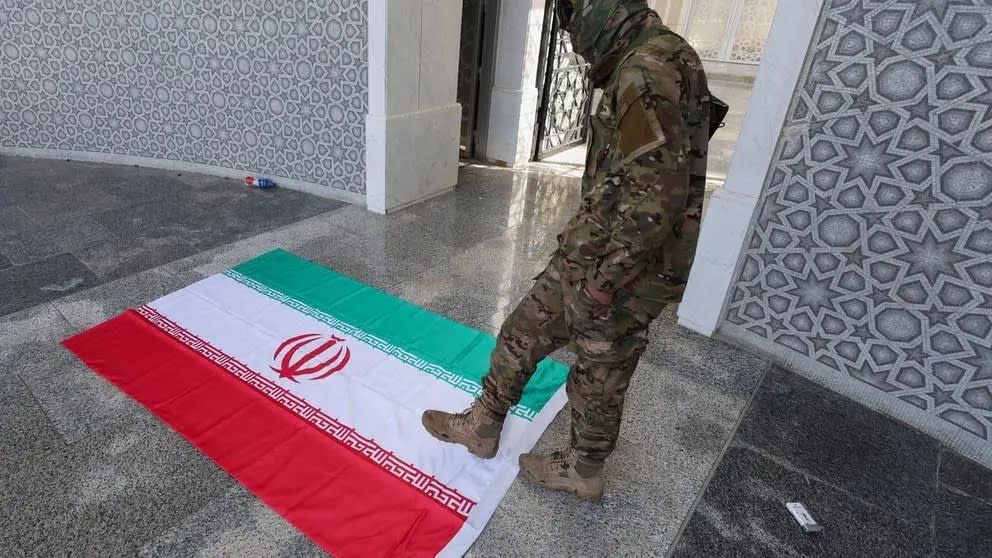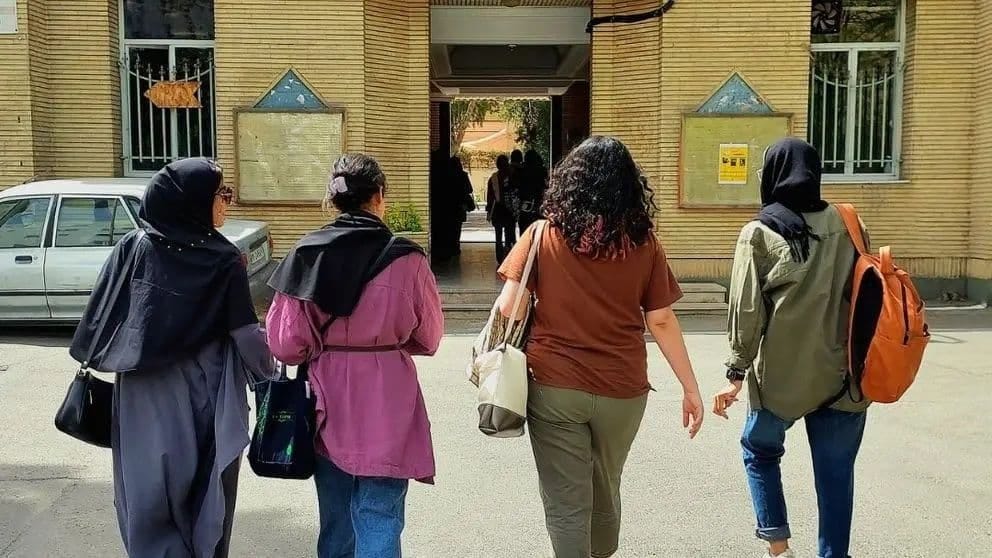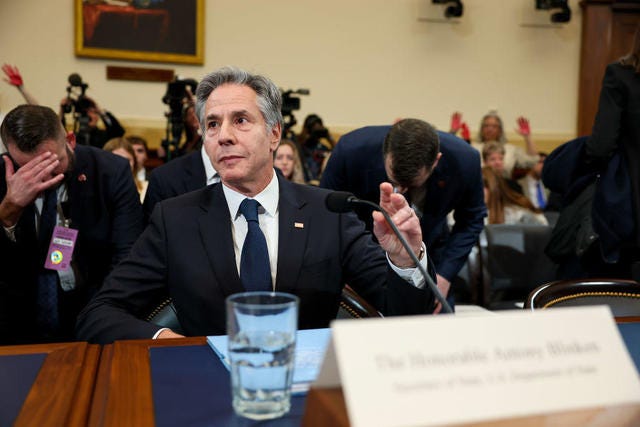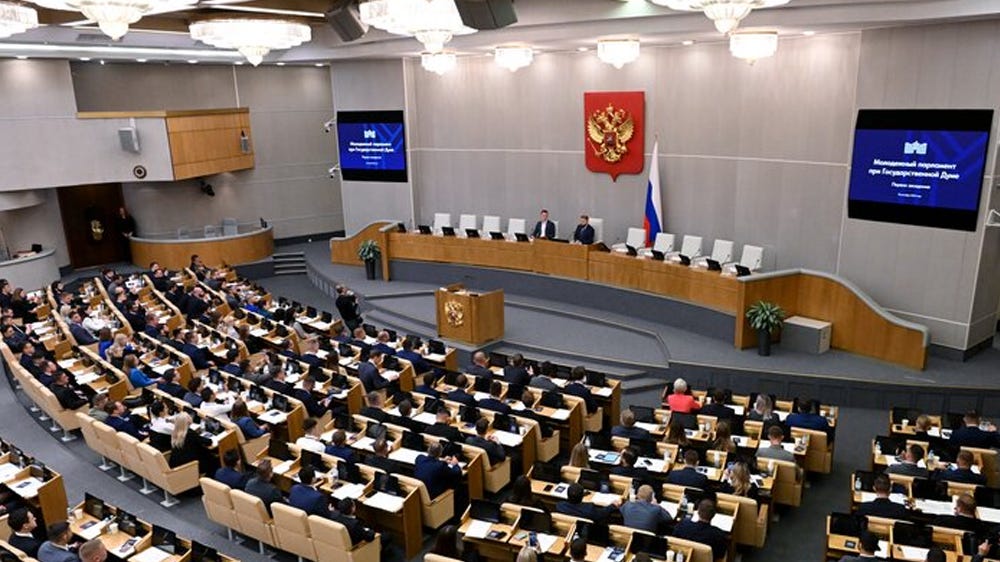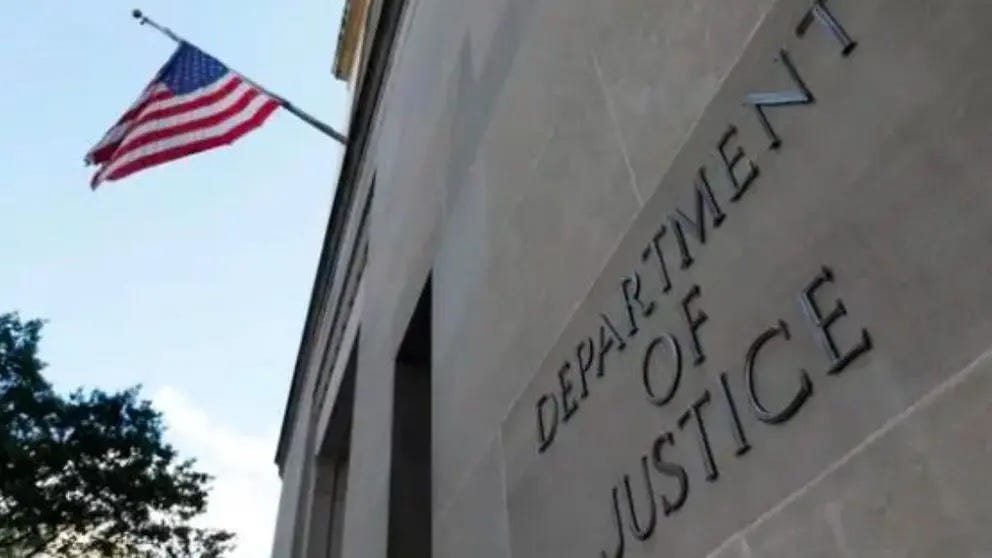The Week of December 9-15
Security and Conflict
Khalil Haqqani Killed in Suicide Attack – On Wednesday, Khalil-ur-Rahman Haqqani, the acting head of the Taliban's Ministry of Refugees and Repatriation, was killed in a suicide bombing at the ministry’s mosque in Kabul around 2:00 PM. The explosion, believed to have been caused by an explosive device planted inside the mosque, killed Haqqani and four others, reportedly his bodyguards, and injured four more. Taliban sources condemned the attack, attributing it to ISIS, whom they referred to as "Khawarij." Haqqani, a powerful figure within the Taliban and the uncle of the Interior Minister, was one of the first high-ranking officials to enter Kabul after the fall of the previous Afghan government. Known for carrying arms in his office and at official events, he was involved in a physical altercation with Mullah Baradar, the Taliban’s deputy economic leader, over the formation of a government. In 2011, the U.S. designated Haqqani as a "global terrorist" and offered a $5 million bounty for his capture. His death marks the highest-ranking official to be killed during the Taliban's rule in Afghanistan. ISKP has claimed responsibility for the attack, saying on social media, “You said that Islamic State Mujahideen do not exist in Afghanistan! Well, here it is—we killed your minister in the heart of Kabul, inside your ministry. What now? Do you still deny our existence?”
Arrests in Relation to Haqqani’s Assasination – On Saturday, the Taliban's intelligence agency arrested five individuals connected to the assassination of Khalil Haqqani. On Sunday, two additional unnamed employees from the same ministry were detained for their alleged involvement. These arrests suggest that ISKP managed to heavily infiltrate the ministry to execute the attack.
ISKP Issues Threat to Taliban and Shias – ISKP's Voice of Khorasan (Issue 35) calls for Sunni youth to attack Shias in Kurram, KP, while criticizing the Taliban, TTP, and PTM for betraying Sunni Muslims. It urges lone wolf attacks globally and accuses the Taliban of prioritizing UN ties over jihad. A poster claims revenge assassinations of Taliban leaders like Khalil Haqqani and warns of escalating attacks in retaliation for past Taliban actions, particularly against children, signaling increased ISKP-Taliban hostilities.
Individual Killed and Burned In Faryab – On Sunday, Taliban members in Faryab, Afghanistan, reportedly killed and burned a man named Abdullah, accusing him of ties to the NRF. A video suggests Taliban involvement, but neither the Taliban nor the NRF has commented. The NRF later claimed an attack on Taliban forces in Qaysar, reporting casualties. Previous anti-Taliban actions in Faryab were noted, but details about Abdullah's family and identity remain unclear.
Talib Killed in Khost – On Friday in Khost province, a Taliban fighter named Yaqub was killed, and four of his guards were injured in an attack by unidentified gunmen. Yaqub, a resident of Ismail Khel Mandozi district, was targeted in Khost city. The attackers managed to escape, while the injured were taken to a hospital for treatment.
Human Rights and Civil Liberties
Women Ordered Out of University Jobs – On Wednesday, the Taliban ordered female university administrative staff to step down, mandating male replacements within three days or face dismissal. Female staff have reportedly been pressured to sign their resignations, leading to emotional scenes, particularly at Herat University. This move is part of the Taliban's ongoing exclusion of women from education and employment since 2021, further exacerbating Afghanistan's economic and humanitarian crises, with over 20 million people in need of humanitarian aid amid rising poverty and isolation.
Floggings – On Tuesday, two individuals, including a woman, were flogged in Ghazni. On Saturday, three people were flogged in Kunduz.
Internal Politics
Siraj Haqqani Holds Meeting after Uncle’s Assassination – Following the death of Khalil Haqqani, Sirajuddin Haqqani summoned his senior commanders from northern Afghanistan to Kabul for a meeting. The gathering, which lasted into the night, resulted in the decision to withdraw Haqqani Network (HQN) members from Kabul and other provinces, relocating them to Paktia and Khost. It remains unclear whether this move is a protest or a show of force for the funeral, but reports suggest that Sirajuddin blames Haibatullah’s intelligence apparatus for his uncle’s death, while others attribute it to ISKP or Pakistan.
Baradar Disputes Claims on Taliban Rifts – On Saturday, Taliban deputy chief minister Abdul Ghani Baradar refuted claims of leadership rifts during the funeral of refugee minister Khalil Rahman Haqqani, who was killed in a December 12 ISIS-K suicide bombing targeting the ministry in Kabul. Baradar emphasized the unity of the Taliban, dismissing reports of internal disputes despite growing evidence of leadership tensions over governance and policy. This statement comes amid claims on social media that either Mullah Hibatullah or Kandahari Talibs, or Sirajuddin Haqqani, may have been behind the assassination—claims that are unlikely.
Ministry of Defense Planning Meeting Held – On Tuesday, senior Taliban security officials, including Army Chief Qari Fasihuddin Fitrat, met at the Ministry of Defense in Kabul to draft a security plan for the solar year 1404 (2025/26). The plan prioritizes citizen safety and securing key economic projects such as TAPI and CASA-1000. The Defense, Interior, and Intelligence agencies will collaborate to implement the strategy, aiming for coordinated national security efforts.
Taliban Hold Meeting to Discuss Syria – On Monday, the Taliban’s Political Commission met to discuss developments in Syria, the Middle East, and Afghanistan’s governance, security, and economy. Chaired by Mullah Abdul Kabir, the meeting emphasized regional relations. This follows their Foreign Ministry's congratulations on Bashar al-Assad’s fall, which was celebrated with the distribution of sweets in provinces like Khost, Nangarhar, and Herat.
International Developments
US Report Indicates Taliban Provide Terrorist Safe Haven – The U.S. State Department's Country Reports on Terrorism 2023 highlights Afghanistan's evolving security landscape under Taliban rule. The Taliban have provided a safe haven for al-Qaeda and Tehrik-e-Taliban Pakistan (TTP), while targeting ISIS-K, which remains their primary threat. High-profile terrorist incidents in 2023 included attacks on civilians and ethnic minorities, notably by ISIS-K. Regional instability persists, with cross-border terrorism affecting neighboring countries. Despite claims of counterterrorism efforts, the Taliban's ties to extremist groups and their approach to dissent raise concerns about their adherence to the 2020 Doha Agreement. The full report can be accessed Here
Secretary Blinken Testifies on Afghanistan Withdrawal – Secretary of State Antony Blinken testified before the House Foreign Affairs Committee on December 11, 2024, regarding the chaotic 2021 U.S. withdrawal from Afghanistan. He defended the administration's decisions, citing challenges inherited from prior policies. Chairman Michael McCaul criticized the delay in Blinken's testimony and vowed to continue investigating what he described as a major foreign policy failure. The session highlighted concerns over accountability, transparency, and support for U.S. allies and Gold Star families.
UN Security Council Meeting on Afghanistan – On Thursday, at a U.N. Security Council meeting on Afghanistan, Andrés Efren Montalvo Sosa, Ecuador's Deputy Permanent Representative, cited a monitoring report revealing key Taliban figures' involvement in drug production and trafficking. Iran's representative raised concerns over the growing presence of Daesh and al-Qaeda, criticizing the Taliban's restrictions on women for worsening the humanitarian crisis. He urged political reforms and action against narcotics production. Roza Otunbayeva, head of UNAMA, emphasized that Taliban restrictions on women working with national and international organizations severely hinder humanitarian efforts, calling for strong advocacy and mitigation. Tom Fletcher warned of Afghanistan's escalating poverty, food insecurity, and healthcare collapse, urging urgent action to safeguard millions' survival. China's envoy highlighted global security threats from Afghan-based terrorist groups, advocating for international unity. Meanwhile, Roya Mahboob criticized the exclusion of women from Taliban envoy talks, linking it to gender apartheid and broader peace and security issues.
US Security Council Extends Sanctions Monitoring Team for Afghanistan – The U.N. Security Council unanimously extended the mandate of the sanctions monitoring team for Afghanistan by 14 months, maintaining sanctions against the Taliban, including asset freezes, travel bans, and an arms embargo. The U.S. representative welcomed the resolution, calling it crucial for Afghanistan's stability and urging rigorous enforcement to ensure its effectiveness in countering threats to peace and security.
CSTO Meeting in Moscow – On Wednesday, The CSTO's Afghanistan Working Group met in Moscow and highlighted that terrorist threats to member states primarily originate from Afghanistan. Representatives from the UN, Shanghai Cooperation Organisation, and other bodies attended. Discussions focused on regional security challenges posed by Afghan-based terrorist groups, underscoring collective efforts to address cross-border threats and maintain stability in Central Asia.
UNAMA Meeting on Alternatives to Poppy Growth – On Saturday, Georgette Gagnon, UNAMA's deputy for political affairs, met with Kandahar's Taliban deputy governor to discuss UN operations and sustainable alternatives to poppy cultivation. She emphasized integrating local needs into 2025 plans and collaborating with UN agencies to develop long-term strategies for replacing poppy crops, addressing the economic reliance of communities on illicit cultivation.
Acting Minister of Health Meets with WHO – On Monday, the Taliban Ministry of Public Health reported that Minister Noor Jalal Jalali met with international health officials to discuss strengthening Afghanistan's health sector, addressing challenges, and securing international aid. The meeting coincides with the Taliban's ban on female medical education, which has drawn global criticism. The UNHCR reports that 17.9 million people in Afghanistan need health assistance, with high maternal and child mortality rates and widespread malnutrition.
Freedom of the Press
Music Banned from Broadcasts In Kabul – On Thursday, the Taliban's Ministry for the Promotion of Virtue and Prevention of Vice ordered media outlets in Kabul to cease broadcasting music and avoid content deemed contrary to Islamic principles and Afghan culture. This move adds to a series of growing restrictions on Afghanistan’s media, further tightening control over journalism and free expression in the country.
Regional Developments
Pakistani Authorities Meet with Taliban Ambassador – On Monday, Pakistan's Foreign Minister Mohammad Ishaq Dar met Taliban Ambassador Sardar Ahmad Shaqib to discuss bilateral ties, trade, refugees, and regional connectivity. The Taliban envoy also met with Sadiq Khan, Pakistan's new special representative for Afghanistan. Despite efforts to strengthen relations, Pakistan remains concerned about terrorist groups like the TTP in Afghanistan. Reports suggest China is meditating to improve relations between the two neighbors.
Miscellaneous
UNHCR Statement on Afghanistan – On Monday, UNHCR reported that 6.6 million Afghans lack adequate shelter, and 17.9 million require health-related aid amid a fragile and under-resourced healthcare system. High maternal and child mortality rates, malnutrition, and disease outbreaks are straining services, exacerbated by a severe shortage of healthcare workers. Rural communities face the greatest inequities, with systemic disparities and inadequate infrastructure further compromising health outcomes across Afghanistan.
Mine Collapse in Samangan – On Saturday evening, a coal mine in the Safid Khak area of Gula village, Dara-i-Suf Payin district, Samangan province, collapsed, trapping 35 workers. Local Taliban officials confirmed that 22 workers have been rescued, while efforts are ongoing to save the others. The Taliban-controlled Bakhtar News Agency reported that the collapse occurred during work. Rescue teams are on-site, and images of the operation have been shared by local media.
NEXT WEEK
In Afghanistan, crackdowns, checkpoints, and searches are expected in response to the assassination of Khalil Haqqani earlier this week, particularly in Kabul. These measures may target those who assisted the ISKP fighter responsible for the attack. Security and tensions are likely to remain high throughout the country.
The Salang Tunnel will be closed to large vehicles for the next two weeks due to heavy snowfall. Travelers should stay informed about road conditions and weather forecasts, and exercise caution when traveling through Salang during the winter months.
In Pakistan, authorities are preparing to implement new restrictions on Afghans residing in Islamabad starting December 31. Afghans in the city should ensure they have the necessary documentation, as crackdowns may begin before the official deadline. Additionally, the TTP has ended its warning period for security personnel to transition to civilian roles, signaling an increase in violence over the coming weeks.
In Iran, warnings have been issued regarding discussions about the potential fall of Bashar al-Assad in Syria. Afghans in Iran are advised to exercise caution, particularly on social media. Anti-Afghan sentiment remains high, and individuals should stay vigilant about their surroundings, as deportations continue.
REGIONAL ROUNDUP
IRAN
Attack on Afghans in Yazd – Following a verbal dispute between Iranian citizens and Afghan workers in Yazd province, Iran, the workers' rooms were set on fire. The incident occurred on December 8 in Azad Shahr, leaving eight Afghan workers severely burned, with some in critical condition. The victims were from Ghor province. Attacks on Afghan migrants in Iran have occurred previously in other regions.
Continued Executions – On Wednesday, Iran executed nine prisoners in Ghezel Hesar Prison, Karaj, including one Afghan national. Five were convicted of murder, and four faced drug-related charges, according to a U.S.-based rights group. Later in the week, three additional Afghans were executed, though further details are currently unavailable.
248 Migrants Detained in Sistan and Baluchistan Province – Omid Shahriari, police commander in Zahak, Sistan and Baluchistan province, reported the arrest of 248 undocumented migrants during a 10-day "neighborhood security plan." The initiative also led to the detention of drug dealers, arms traffickers, and thieves. Shahriari did not specify how many of the detained migrants were Afghan nationals.
Continued Deportation – Iran's Attorney General of Kerman reported the deportation of 1,788 undocumented Afghan migrants over three days as part of a security plan. Employing undocumented Afghans is classified as a crime, and officials emphasized the necessity of legal entry. Despite receiving limited UN aid, Iran claims this support is insufficient. Reports suggest thousands of migrants are deported weekly, including some with valid documents. The Islamic Republic has accelerated deportations, aiming to expel two million Afghan migrants by March 2025.
PAKISTAN
Pakistani Forces Kill 13 TTP – Pakistani forces killed 13 TTP militants, including a key commander, during a raid on a hideout in North Waziristan's Ghazoom Mandi area. Two other commanders, Gohar and Abu Bakr, were injured. Local residents linked the commander to multiple suicide bombings. Some militants fled, abandoning comrades’ bodies. Thick black smoke was seen after the operation, with the Pakistani military yet to comment officially.
TTP To Resume Attacks on Security Personnel – On Friday, TTP issued directives to its fighters after the expiration of a two-month ultimatum given to security personnel to resign from their positions and transition to civilian livelihoods. This ultimatum warned security forces, including police and Levies personnel, to abandon their roles or face consequences. Following its end, the TTP ordered arrests or executions of those who remained in service, with exceptions for individuals pledging to resign. The group also threatened retaliation against the families and properties of security officials if TTP members or their families are targeted.
SPOTLIGHT ANALYSIS
Understanding the Implications of the Taliban’s Opium Ban in Afghanistan
William Byrd
The Taliban’s opium ban, coupled with Afghan farmers’ replacement of poppy largely with low-value wheat, is likely to worsen dissatisfaction and political tensions. The Taliban’s persistence in enforcing the ban has been notable, especially in 2024. If the ban remains in place, it would demonstrate the regime’s strength but also worsen rural poverty, increase dissatisfaction among landholders and spur political instability. This will likely lead to increased humanitarian needs and more pressures for outmigration to nearby countries and beyond, both of which are of interest to the U.S. and other Western countries. Conversely, if the ban weakens in response to pressures and resistance, a revival of widespread poppy cultivation could undermine the regime’s authority. Aid alone will not offset the economic shock of the ban, nor stimulate the long-term growth needed to effectively combat the opium problem.
The most accurate available data, compiled by the geospatial technology firm Alcis, shows that opium poppy cultivation in Afghanistan fell sharply in 2024, contrary to the United Nations Office on Drugs and Crime’s (UNODC) estimate that it increased. This clearly demonstrates that the Taliban’s opium ban has intensified, not weakened, in its second year of implementation, highlighting the importance of informing analysis and policy debates with high-quality, timely data.
As with other core Taliban ideological priorities, such as severe and worsening gender restrictions, international influence over their drugs policies is, at best, limited. However, at the very least, dialogue on the opium ban and related issues should be based on accurate and timely information. Additionally, the international community should avoid giving the Taliban false hope that large amounts of aid will be forthcoming in response to the ban or that, even if it were, such aid would solve the opium problem — let alone quickly. As shown by experience in other countries and in Afghanistan, the solution lies in rural development and robust economic growth over an extended period, during which the country and its economy can gradually reduce their dependence on illegal drug crop production.
AFGHAN NEWS
Taliban minister from Haqqani network assassinated in Kabul
Ayaz Gul
A bomb blast Wednesday in Kabul, Afghanistan, killed the Taliban’s minister of refugees and repatriation, Khalil-Ur-Rahman Haqqani, and at least four associates.
Taliban sources said that the afternoon “suicide" bombing occurred within the ministry building in the Afghan capital as Haqqani was exiting his office. Several other individuals were reportedly injured.
There was no immediate claim of responsibility for the assassination of the minister, which marks one of the most significant attacks on hardline Taliban leaders since they returned to power in August 2021.
Taliban spokesman Zabiullah Mujahid confirmed the “martyrdom” of Haqqani in the attack he blamed on “Khawarij,” a term the de facto rulers use to refer to Islamic State-Khorasan or IS-K, an Afghanistan-based Islamic State affiliate.
Taliban introduce new restrictions aimed at ‘un-Islamic’ customs
Qaseem Azizi
The Taliban announced a new initiative on Sunday to curb customs and traditions they deem “undesirable” or “contrary to Sharia law,” as part of their continued campaign of restrictions on personal and social freedoms in Afghanistan.
The Taliban-run General Directorate of Administrative Affairs said in a statement that the directive came from the Taliban’s leader, Hibatullah Akhundzada.
The statement added that a joint meeting involving multiple Taliban ministries had finalized and approved the plan.
Details of the plan, including what constitutes “undesirable customs,” have not been made public, raising concerns among Afghan citizens and human rights activists that the initiative will lead to further curtailment of freedoms.
Taliban revoke licenses of 11 higher education institutions
Mujeeb Rahman Awrang Stanikzai
The Taliban’s Ministry of Higher Education announced on Wednesday that it has canceled the licenses of 11 private higher education organizations, accusing them of violating administrative and educational regulations. Officials from the organizations will be referred to judicial authorities, the ministry said.
In a statement, the ministry claimed the institutions were found to be negligent, citing issues such as the “existence of ghost teachers and students, fake agreements, and a lack of qualified administrative staff.” The decision, the ministry said, was made by its leadership.
REGIONAL NEWS
Iranian diplomat calls for strengthening ties in meeting with Taliban minister
Siyar Sirat
Alireza Bikdeli, Iran’s new acting head of mission in Afghanistan, emphasized deepening relations with the Taliban during a meeting with Amir Khan Muttaqi, the Taliban’s foreign minister, the Taliban-run Ministry of Foreign Affairs said on Monday.
According to the ministry, Mr. Bikdeli proposed the exchange of senior delegations between the two sides as a step toward enhancing bilateral ties.
Iran cracks down on critical voices amid Syrian fallout
Iran International
Iran's Attorney General's Office has warned media outlets and online activists to avoid discussions of the downfall of Tehran's ally Bashar al-Assad in Syria that could undermine domestic security.
The statement, issued Wednesday, emphasized the importance of controlling narratives during what it described as “sensitive internal and regional conditions.”
Details of Iran’s new hijab law raise widespread concerns
Maryam Sinaiee
The details of Iran's new hijab law, unveiled by media in Tehran on Saturday, including stricter measures and the potential rise of vigilantism, have deeply unsettled many Iranians.
The full text of the legislation, recently disclosed to the public, has unveiled previously hidden provisions, including requirements to establish "popular" groups tasked with issuing verbal and written warnings to individuals who fail to comply with the new law.
In recent days, some social media users and anti-immigrant activists have launched campaigns opposing the exemption in the new law that allows "foreign nationals with official residence documents" to bypass the Iranian citizenship requirement for joining these "popular" groups.
INTERNATIONAL NEWS RELATING TO AFGHANISTAN
Blinken defends Afghanistan withdrawal at contentious House hearing
Caitlin Yilek
Secretary of State Antony Blinken on Wednesday defended President Biden's decision to withdraw from Afghanistan while appearing before the Republican-led House Foreign Affairs Committee, which has long sought to question him over the deadly evacuation.
"I firmly believe the president's decision to withdraw from Afghanistan was the right one," he told lawmakers.
Blinken declined to take the blame for decisions that were made leading up to the exit, explaining that actions taken by the first Trump administration left the Biden administration in a weak position and intelligence assessments expected Kabul to remain the hands of the Afghan government.
US says it can legally engage with designated groups like Taliban
Siyar Sirat
The United States can legally engage with designated terrorist organizations, including the Taliban, when it aligns with national interests, the State Department spokesperson Mathew Miller said on Tuesday, in response to a question, referencing past and present practices.
Miller highlighted that the previous administration negotiated directly with the Taliban as part of the 2020 agreement to withdraw U.S. troops from Afghanistan.
Russia Moves Closer to Delisting Taliban Amid Concerns Over Terrorist Ties
Kabul Now
The Russian lower house of Parliament has reportedly voted in favor of legislation that would make it possible to remove the Taliban from the country’s list of designated terrorist organizations.
As reported by Reuters, Russia’s State Duma, the lower legislative chamber, passed the bill on its first reading on Tuesday, December 10. The bill still requires approval in two more readings in the Duma, the Upper House, and the Russian president’s signature to become law.
Afghan Man Sentenced To 30 Years In US Prison For Drug Trafficking & Financing Taliban
Afghanistan International
The US Department of Justice announced that it has sentenced Abdul Sattar Barakzai, 59, to 30 years in prison for “participating in narcoterrorism for the benefit of the Taliban and the Haqqani Network.”
Barakzai is also charged with importing heroin into New York and forging documents. He was found guilty after a two-week trial that ended in August.
According to court documents and evidence presented at the trial, the US Treasury Department sanctioned Barakzai in June 2012 for storing and transferring money to the Taliban.

